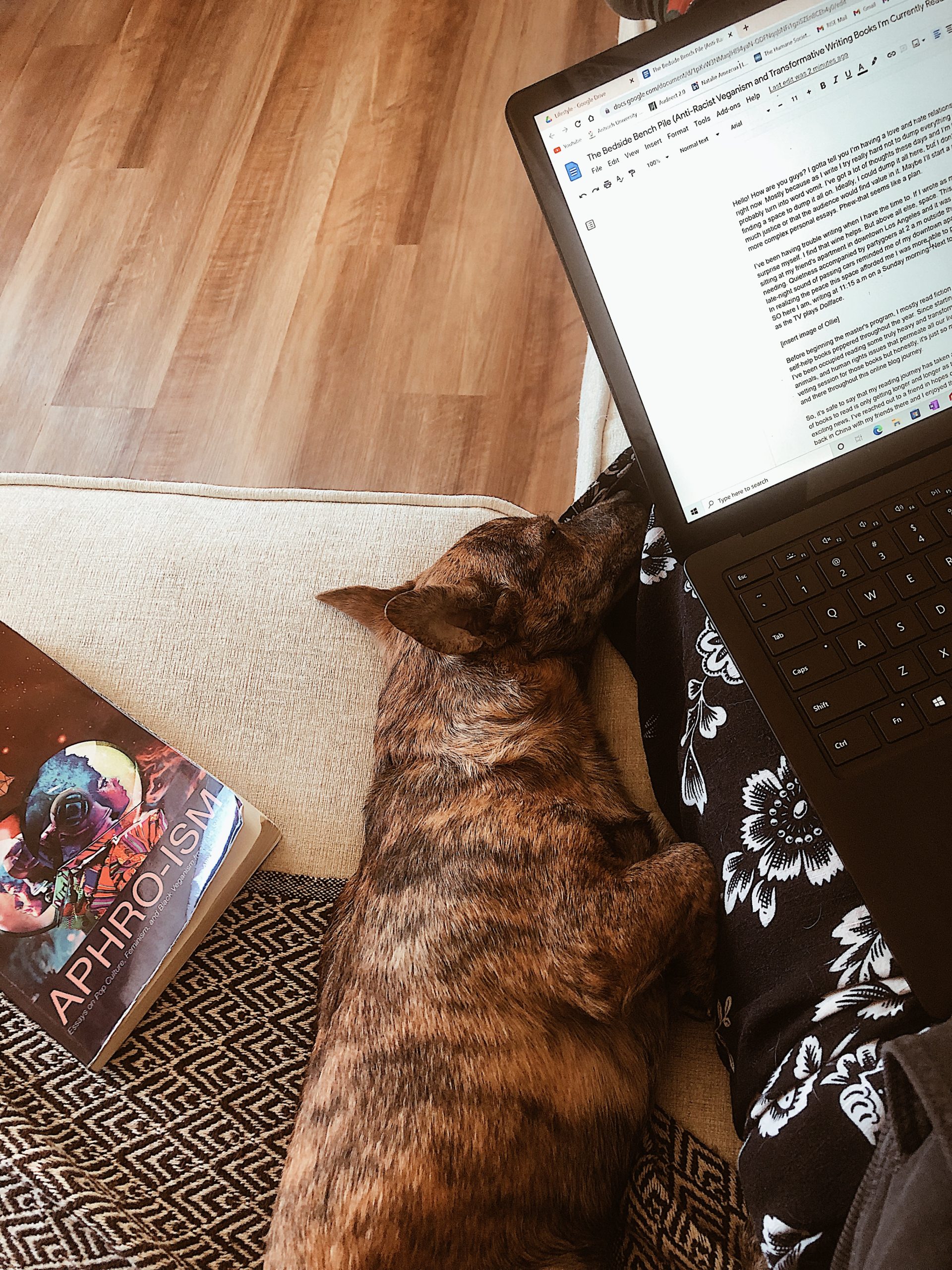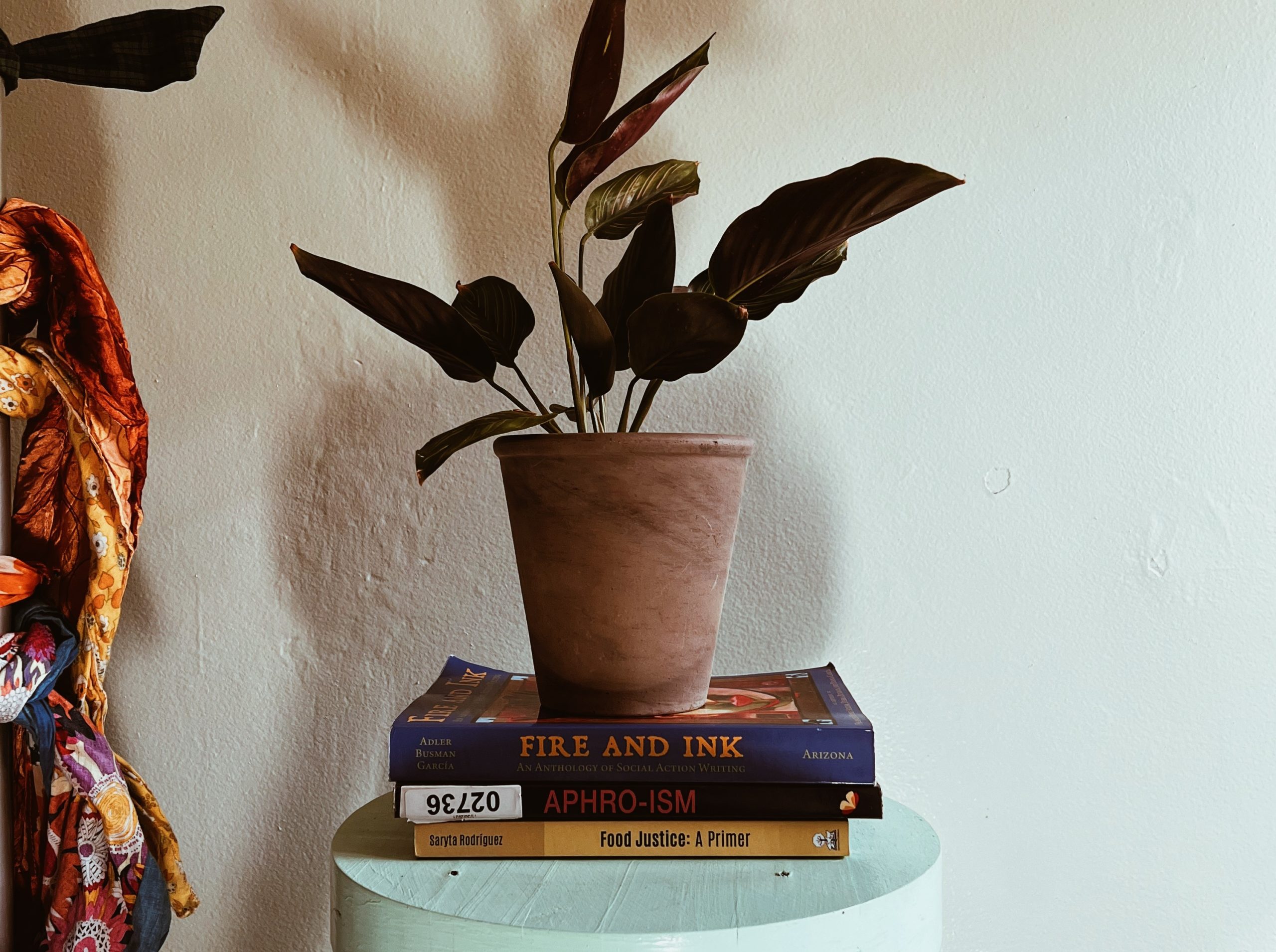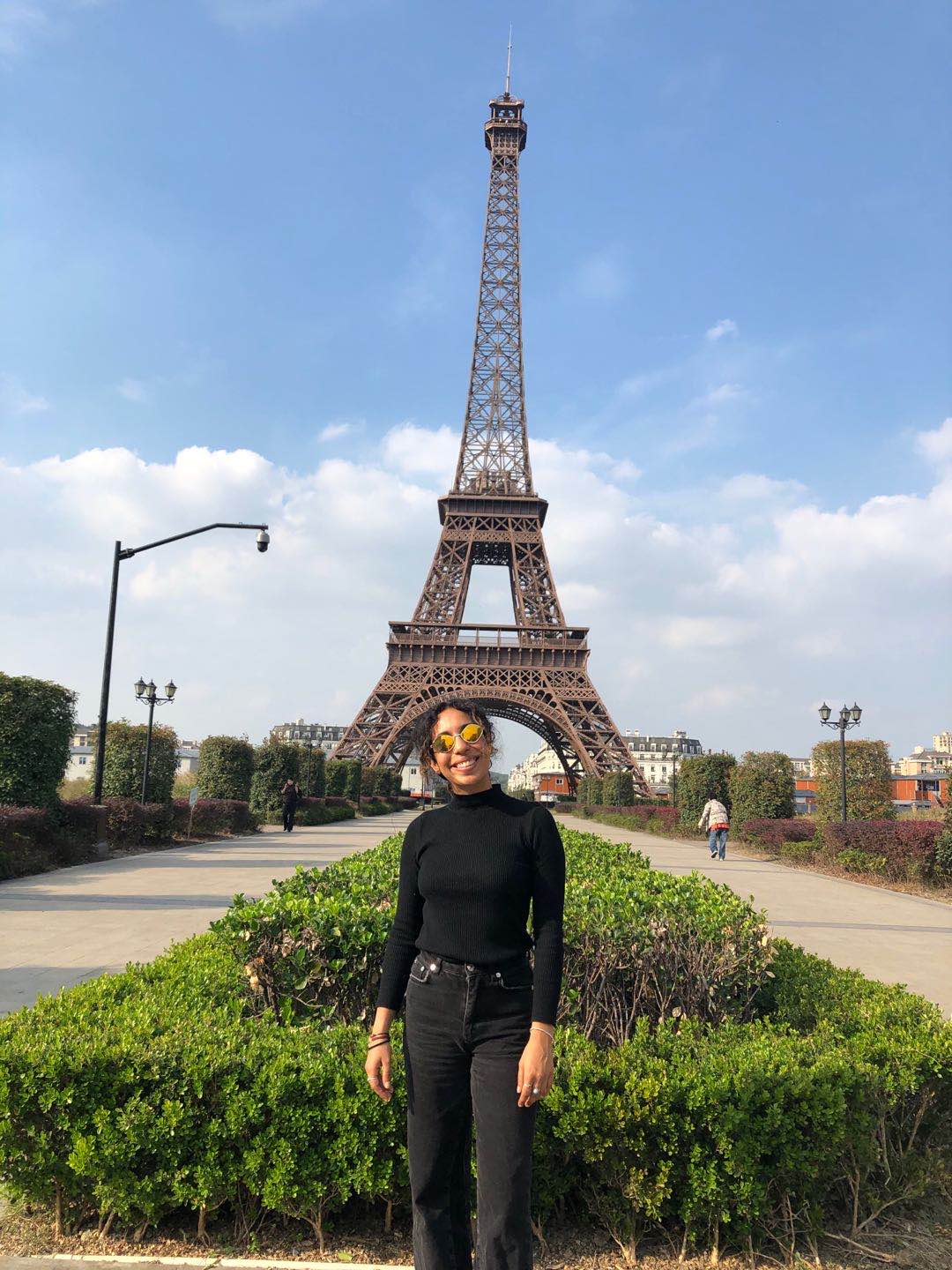
Hello! How are you guys? I gotta tell you I’m having a love and hate relationship with writing right now. Mostly because as I write I try really hard not to dump everything onto text as it will probably turn into word vomit. I’ve collected a lot of thoughts these days and I’m having a bit of trouble finding a space to dump it all on. Ideally, I could dump it all here, but I don’t think it would do much justice or that the audience would find value in it. Maybe I’ll start a medium blog and write more complex personal essays there. Phew-that seems like a plan for now.
I’ve been having trouble writing when I have the time to. If I wrote as much as I watched TV I’d surprise myself. I find that wine helps. But above all else, space. This weekend I spent it pup sitting at my friend’s apartment in downtown Los Angeles and it was just the quietness I’ve been needing. Quietness accompanied by partygoers at 2 a.m outside the window. The early and late-night sound of passing cars and people yelling reminded me of my downtown apartment when I lived in China. Walking past drunk people on my way to my personal Oasis to do the complete opposite was strangely warming. In realizing the peace this space afforded me I was more able to pick up the laptop and write. So, here I am, writing at 11:15 a.m on a Sunday morning. Cup of warm coffee pleading for attention. Next to me is little saint Ollie, sleeping as the TV plays Dollface.


Before beginning the master’s program in Humane Education from Institute for Humane Education through Antioch University, I mostly read fiction novels, and a few memoirs and self-help books peppered throughout the year. Since starting the program back in May 2020, I’ve been occupied reading some truly heavy and transformative books about the planet, animals, and human rights issues that permeate all our lives. I guess I should include a detailed vetting session for those books but honestly, it’s just so much. I do hope to include them here and there throughout this online blog journey.
So, it’s safe to say that my reading journey has taken a turn for the better. And although my list of books to read is only getting longer and longer as the months pass by, I can’t complain. More exciting news, I’ve reached out to a friend in hopes of joining her book club! I was part of one back in China with my friends there and I enjoyed the whole discussion aspect of the club. I’m an old soul.
This month, I’ve been slowly and heavily reading Aphro-ism by Aph and Syl Ko, Food Justice: A Primer by Saryta Rodríguez, and Fire and Ink: An Anthology of Social Action Writing by Adler Busman García. It’s been a transformative process, to say the least. There’s been a lot of opportunities to challenge my own cognitive biases, understand how white-supremacy frameworks inform and perpetuate racism and animal cruelty, among basically every injustice, and what it means to both deconstruct and reconstruct these lenses and how they shape our lives and influence our way of viewing and being tolerable of shit happening all around the world, but most importantly right here in our backyards. I’ve been reading up on food inequities and the cultural and political consequences to food sovereignty and food justice in our/global communities, particularly communities of color in the US. In addition, reading short stories and poems that ignite a fire in my gut has reminded me why I want to write more seriously about topics regarding humane education and social justice.

So let’s get deeper into these books:
Aphro-ism: This book of essays on pop culture, Black Veganism, and, feminism has absolutely transformed the way I view oppression. The authors’ focus on the intersectionality of animal cruelty and racism and how they are similar primarily in the way that they both stem from the same oppressive systemーwhite supremacyーhas opened my mind and heart to the underlining issues that inform the way we live. Similarly, they reiterate how animal cruelty is only possible under the framework of white supremacy’s human-animal binary in which humans (and ultimately, the planet) are also victims to. For example, these two sisters beautifully explain (and they do a much better justice to the entire liberatory positionality & mindset than me so please pick up their book) how the human hierarchy created by white supremacy evidently and successfully idolizes the ideal “human” throughout society, which in the case of this world is the white male; queue colonialism. Everyone else who deviates from the ideal, moral “human” (white, cisgender, heterosexual, wealthy, educated) can be “redirected/corrected/punished” through any means otherwise deemed cruel or unbearable towards the ideal human on the hierarchical spectrum. In other words, human isn’t just a biological calssification but in fact a political identity. “What it means to be human, versus what it means to be an “animal” are influenced by white supremacy”.
This is why violence is accepted to some humans, and also to nonhumans (animals/planet). With the human-animal divide, violence towards anything or anyone who doesn’t qualify as “human” both in species and in behavior or mode is tolerated and often dismissed. In addition, the Ko sisters posit that mainstream veganism misses a huge opportunity to make real systemic change for animals by missing the connection between animal cruelty and racism and the importance of operating this movement under an anti-racist framework, thus ultimately failing to understand how oppression to our own species is correlated and connected to the oppression onto other species. In other words, true animal oppression is impossible to diminish without the dismantling of white supremacy and vice versa, as long as white supremacy continues to inform and shape the way we view the world and treat one another, these “isms” (racism, veganism, ableism, classism) will continue to circulate within our societal culture. Hence, oppression will remain. As social justice advocates and simply, members of this planet, we all need to reevaluate our own racism and unconscious biases that shape the way we view and treat one another. Understand where they come from (who/what informs us) and recognize the reality that all ideas are not exhausted and therefore we as a societal entity should and must include the ideas of diverse people. We simply need to open space and invite the ideas of people who have been left out of the conversation (people of color).
This book was paired with weekly discussions with our professor, Dana McPhall, and a collection of a multitude of articles like this one and recorded talks as a part of the text for the Race, Intersectionality, and Veganism course I’m taking this spring semester. This has helped with unveiling all the inner feelings and thoughts and ideas that have surfaced since reading.
Fire and Ink: I love a good Anthology. During my undergrad, I minored in Women’s, Gender, and Sexuality studies, and as part of the text for a lot of those courses, we read anthologies. Mostly from women of color and during that time, I found myself inspired and relating to the women in those poems and short stories. I didn’t know then that this was transformative language arts. Fire and Ink is similar in that way. It encompasses the voices of a lot of people like me (color, first-generation) and a lot not like me in ways that not only grants a window into their life but a deeper window into their soul, and thus, I am transformed. I find power in a lot of these pieces. I find pain and hurt and willingness to overcome all the bad cards compiled onto human lives. If you’re a fan of poetry, short stories or just writing that transforms and ignites your gut then this is a good one. Another good one that pops to my head is This Bridge Called My Back: Writings by Radical Women of Color by Cherríe Moraga & Gloria Anzaldúa.
Food Justice: A Primer: I just started this book and so I don’t feel completely comfortable saying much about it without potentially getting it completely wrong so I’ll say this: food justice encompasses the intersectionalities of food sovereignty x food equity. Predominantly working-class communities face real health-threatening obstacles to food justice. We all know how important access to healthy foods is and when something directly linked to our quality of life is threatened as a byproduct of inequality in the big house, it’s something worth speaking up about. Especially as a person of color from a working-class community, I can recognize the threat access to affordable healthy foods has in our lives and the problems that can arise as a consequence. To understand just a bit more, it’ll be rewarding to watch this 12 min video of Lauren Ornelas, founder of the Food Empowerment Project, at the FARM 2012 Animal Rights National Conference about the commonalities of oppression.
I love me a good fiction novel after some heavy reading, so I think i’ll scroll over the All Books I Want To Read post after this weekend.
Happy Reading, and please share your current bedside table /bench bunch!

Author
Natalie Amezcua








0 Comments